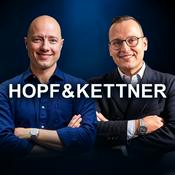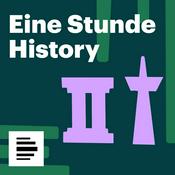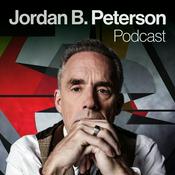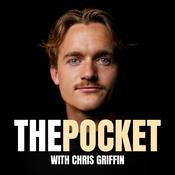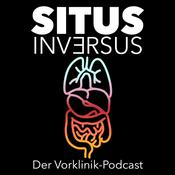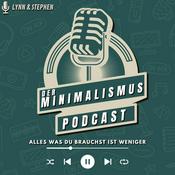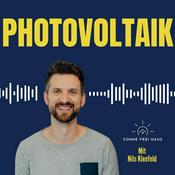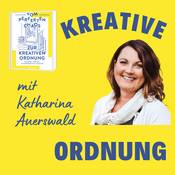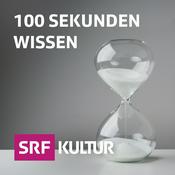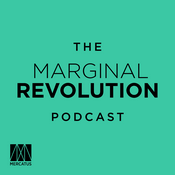Conversations with Tyler
Mercatus Center at George Mason University
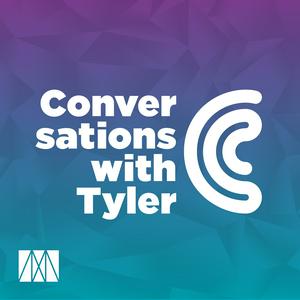
Neueste Episode
280 Episoden
Andrew Ross Sorkin on Market Bubbles, Banking Rules, and the Real Lessons of 1929
04.2.2026 | 56 Min.Andrew Ross Sorkin sees the crash of 1929 as a tale of excessive leverage and irrational speculation, but Tyler wonders: maybe those sky-high 1929 prices were actually justified given America's remarkable century ahead. Maybe the real problem was the "Negative Nellies" who panicked afterward rather than the speculators everyone blamed. For that matter, isn't 2008 looking less and less like a bubble with each passing year?
Tyler and Andrew debate whether those 1929 stock prices were justified, what Fed and policy choices might have prevented the Depression, whether Glass-Steagall was built on a flawed premises, what surprised Andrew most about the 1920s beyond the crash itself, how business leaders then would compare to today's CEOs, whether US banks should consolidate, how Andrew would reform US banking regulation, what to make of narrow banking proposals and stablecoins, whether retail investors should get access to private equity and venture capital, why sports gambling and new financial regulations won't make us much safer, how Andrew broke into the New York Times at age 18, how he manages his information diet, what he learned co-creating Billions, what he plans on learning about next, and more.
Read a full transcript enhanced with helpful links, or watch the full video on the new dedicated Conversations with Tyler channel.
Recorded October 30th, 2025.
Other ways to connect
Follow us on X and Instagram
Follow Tyler on X
Follow Andrew on X
Sign up for our newsletter
Join our Discord
Email us: [email protected]
Learn more about Conversations with Tyler and other Mercatus Center podcasts here.
Image Credit: Mike Cohen- Tyler considers Diarmaid MacCulloch one of those rare historians whose entire body of work rewards reading. This work includes his award-winning Cranmer biography, his sweeping histories of Christianity and the Reformation, and his latest on sex and the church, which demonstrates what MacCulloch calls the historian's true vocation: unsettling settled facts to keep humanity sane.
Tyler and Diarmaid explore whether monotheism correlates with monogamy, Christianity's early instinct towards egalitarianism, what the Eucharistic revolution reveals about the cathedral building boom, the role of Mary in Christianity and Islam, where Michel Foucault went wrong on sexuality, the significance of the clerical family replacing the celibate monk, why Elizabeth I—not Henry VIII—mattered most for the English Reformation, why English Renaissance music began so brilliantly but then needed to start importing Germans, whether Christianity needs hell to survive, what MacCulloch plans to do next, and more.
Read a full transcript enhanced with helpful links, or watch the full video on the new dedicated Conversations with Tyler channel.
Recorded October 29th, 2025.
This episode was made possible through the support of the John Templeton Foundation.
Other ways to connect
Follow us on X and Instagram
Follow Tyler on X
Sign up for our newsletter
Join our Discord
Email us: [email protected]
Learn more about Conversations with Tyler and other Mercatus Center podcasts here.
Image Credit: Barry Jones - At 22, Brendan Foody is both the youngest Conversations with Tyler guest ever and the youngest unicorn founder on record. His company Mercor hires the experts who train frontier AI models—from poets grading verse to economists building evaluation frameworks—and has become one of the fastest-growing startups in history.
Tyler and Brendan discuss why Mercor pays poets $150 an hour, why AI labs need rubrics more than raw text, whether we should enshrine the aesthetic standards of past eras rather than current ones, how quickly models are improving at economically valuable tasks, how long until AI can stump Cass Sunstein, the coming shift toward knowledge workers building RL environments instead of doing repetitive analysis, how to interview without falling for vibes, why nepotism might make a comeback as AI optimizes everyone's cover letters, scaling the Thiel Fellowship 100,000X, what his 8th-grade donut empire taught him about driving out competition, the link between dyslexia and entrepreneurship, dining out and dating in San Francisco, Mercor's next steps, and more.
Read a full transcript enhanced with helpful links, or watch the full video on the new dedicated Conversations with Tyler channel.
Recorded October 16th, 2025.
Other ways to connect
Follow us on X and Instagram
Follow Tyler on X
Follow Brendan on X
Sign up for our newsletter
Join our Discord
Email us: [email protected]
Learn more about Conversations with Tyler and other Mercatus Center podcasts here.
Timestamps
00:00:00 - Hiring poets to teach AI
00:05:29 - Measuring real-world AI progress
00:13:25 - Why rubrics are the new oil
00:18:44 - Enshrining taste in LLMs
00:22:38 - Turning society into one giant RL machine
00:26:37 - When AI will stump experts
00:30:46 - AI and employment
00:35:05 - Why vibes-based hiring fails
00:39:55 - Solving labor market matching problems
00:45:01 - Scaling the Thiel Fellowship
00:48:11 - A hypothetical gap year
00:50:31 - Donuts, debates, and dyslexia
00:56:15 - Dating and dining out
00:59:01 - Mercor's next steps - Help us keep the conversations going in 2026. Donate to Conversations with Tyler today.
On this special year-in-review episode, Tyler and producer Jeff Holmes look back on the past year on CWT and more, including covering the most popular and underrated episodes, why single-subject deep dives made for some of the best conversations this year, the biggest AI surprises and how LLMs changed the show's production function, what happened with the Magnus Carlsen episode, listener questions on everything from hotel selection to AI x-risk discourse, Tyler's serene acknowledgment that uncontrollable laughter is something he has neither experienced nor desires, reviewing his pop culture picks from 2015, and a dispatch from Muscat, Oman.
Read a full transcript enhanced with helpful links, or watch the full video on the new dedicated Conversations with Tyler channel.
Recorded November 5th and December 15th, 2025.
Other ways to connect
Follow us on X and Instagram
Follow Tyler on X
Follow Jeff on X
Sign up for our newsletter
Join our Discord
Email us: [email protected]
Learn more about Conversations with Tyler and other Mercatus Center podcasts here.
Timestamps
00:00:00 - Favorite episodes of the year
00:12:08 - AI's impact on the show
00:15:05 - The lost Magnus episode
00:17:13 - Tyler's #1 hotel amenity
00:18:40 - Tyler's growing influence and thoughts on tariffs
00:21:15 - AI x-risk discourse
00:26:22 – Copying Tyler's interview style
00:28:50 - Tyler's lack of joy
00:32:55 - How well ChatGPT answers as Tyler
00:35:15 - Tyler's 2015 movie picks
00:40:44 - Tyler's 2015 book picks
00:45:00 - Tyler's 2015 music picks
00:48:16 - Most popular episodes and thoughts on Oman
Photo Credit: Kevin Trimmer Alison Gopnik on Childhood Learning, AI as a Cultural Technology, and Rethinking Nature vs. Nurture
17.12.2025 | 1 Std. 1 Min.Help us keep the conversations going in 2026. Donate to Conversations with Tyler today.
Alison Gopnik is both a psychologist and philosopher at Berkeley, studying how children construct theories of the world from limited data. Her central insight is that babies learn like scientists, running experiments and updating beliefs based on evidence. But Tyler wonders: are scientists actually good learners? It's a question that leads them into a wide-ranging conversation about what we've been systematically underestimating in young minds, what's wrong with simple nature-versus-nurture frameworks, and whether AI represents genuine intelligence or just a very sophisticated library.
Tyler and Alison cover how children systematically experiment on the world and what study she'd run with $100 million, why babies are more conscious than adults and what consciousness even means, episodic memory and aphantasia, whether Freud got anything right about childhood and what's held up best from Piaget, how we should teach young children versus school-age kids, how AI should change K-12 education and Gopnik's case that it's a cultural technology rather than intelligence, whether the enterprise of twin studies makes sense and why she sees nature versus nurture as the wrong framework entirely, autism and ADHD as diagnostic categories, whether the success of her siblings belies her skepticism about genetic inheritance, her new project on the economics and philosophy of caregiving, and more.
Read a full transcript enhanced with helpful links, or watch the full video on the new dedicated Conversations with Tyler channel.
Recorded October 30th, 2025.
Other ways to connect
Follow us on X and Instagram
Follow Tyler on X
Follow Alison on X
Sign up for our newsletter
Join our Discord
Email us: [email protected]
Learn more about Conversations with Tyler and other Mercatus Center podcasts here.
Timestamps
00:00:00 - How children—and scientists—learn
00:14:35 - Consciousness, episodic memories, and aphantasia
00:23:06 - Freud's and Piaget's theories about childhood
00:27:49 - Twin studies and nature vs. nurture
00:39:33 - Teaching strategies for younger vs. older children
00:44:07 - AI's ability to generate novel insights
00:53:57 - What Autism and ADHD diagnoses do and don't reveal
00:58:02 - The success of the Gopnik siblings
Photo Credit: Rod Searcey
Weitere Bildung Podcasts
Trending Bildung Podcasts
Über Conversations with Tyler
Tyler Cowen engages today's deepest thinkers in wide-ranging explorations of their work, the world, and everything in between. New conversations every other Wednesday. Subscribe wherever you get your podcasts.
Podcast-WebsiteHöre Conversations with Tyler, {ungeskriptet} - Gespräche, die dich weiter bringen und viele andere Podcasts aus aller Welt mit der radio.de-App

Hol dir die kostenlose radio.de App
- Sender und Podcasts favorisieren
- Streamen via Wifi oder Bluetooth
- Unterstützt Carplay & Android Auto
- viele weitere App Funktionen
Hol dir die kostenlose radio.de App
- Sender und Podcasts favorisieren
- Streamen via Wifi oder Bluetooth
- Unterstützt Carplay & Android Auto
- viele weitere App Funktionen


Conversations with Tyler
Code scannen,
App laden,
loshören.
App laden,
loshören.





